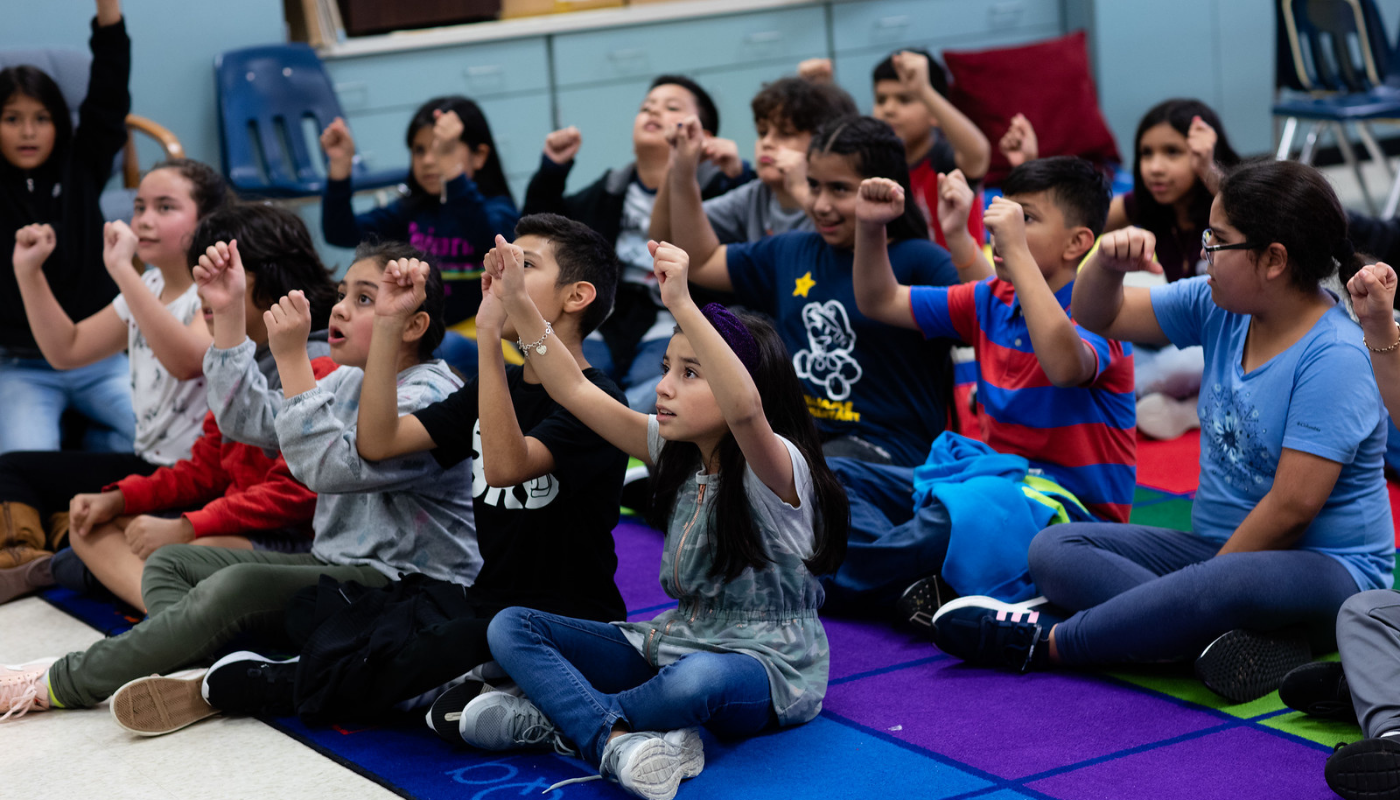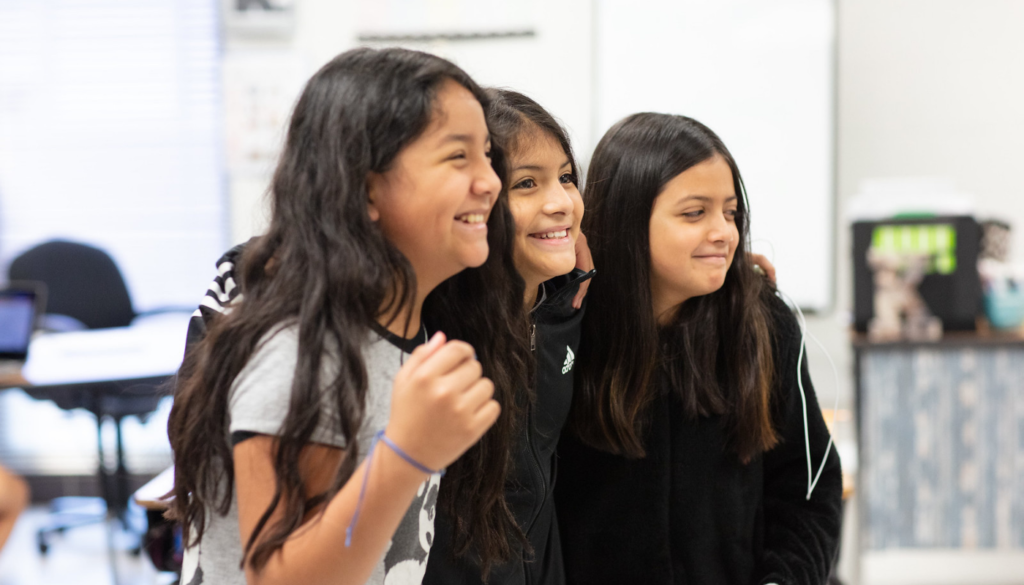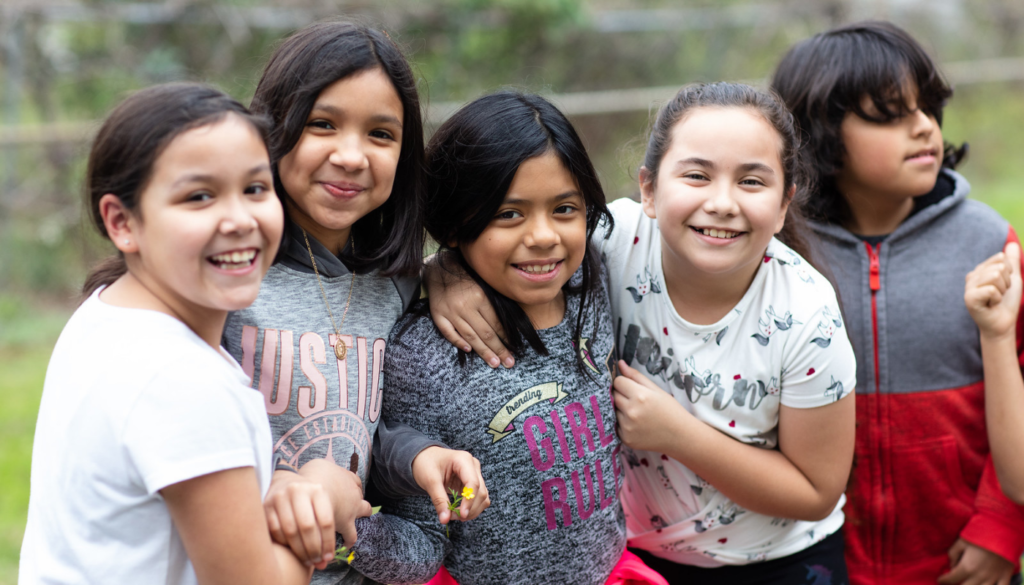
Gradient Learning, our nonprofit organization that partners with thousands of educators across the country, is guided by the vision that educators should be empowered to meet the needs of all of their students. As we move into a new year, I am filled with a sense of positivity, hope, and urgency to fulfill the needs of our educators and students as they embark on the next phase of their journey through this unpredictable time.
This past year, educators and students persevered against tremendous odds, leaning in to life skills and leveraging resources to stay connected.
Quickly leveraging technology to transition to remote learning in March, educators at Westchester Torah Academy in New York found creative ways to keep students on track—even moving forward virtually with a planned mock trial project with a local lawyer serving as their “judge.” Teachers across the country, from Arkansas to Colorado and California leaned into the relationships they’d built through mentoring prior to the pandemic to stay connected with their students. Principals like Kathryn Procope at Howard University Middle School in Washington, D.C. worked diligently to help their teachers and students adapt, and parents like Sabra Quinn in Chesterfield County, Virginia expressed their gratitude for the work teachers were doing to keep their children engaged. Despite many schools shifting this fall between in-person, remote, and hybrid learning models, over 90 percent of both students and teachers engaged with the platform each week, which emphasizes our commitment to support students and teachers wherever learning takes place. These are just a few examples of the ways that educators, students, and families came together this year—exercising life skills like self-regulation and growth mindset to navigate learning outside of the classroom walls.
As we look to the year ahead, we’re focused on creating solutions to foster success for every student, in the classroom and throughout their life.
One of those solutions is our new tool, Along. As schools closed doors and learning moved to living rooms this spring, we heard from educators the need for a way to maintain connections with students, beyond continued learning. Teachers wanted to nurture their students’ social and emotional well-being, no matter the learning environment. Along is an interactive video journal that helps teachers make each student feel seen and heard, and students and teachers have shared how Along has helped them stay connected.

Students want and deserve to see themselves in their school work.
For far too long, too many students have been denied the opportunity to see themselves in their schoolwork. Traditionally, school curriculum hasn’t been representative of all students—the histories and voices of marginalized peoples have been sidelined in core courses like History and Language Arts. However, when students see themselves in their lessons, they learn more. To support all students, we are providing lessons and projects that incorporate pressing societal issues.
To support the whole child, social-emotional learning must play a leading role.
If there was any question before, this past year has solidified the need for social-emotional learning that places student well-being at the forefront of education. Students have been forced to adapt quickly to shifting circumstances, and their lives have changed both in and outside of the classroom walls. Students need support to ensure their social-emotional well-being, and educators are blazing new trails to make it happen. We’re proud to see local education leaders, like Belinda Anderson in Chester County, Tennessee, and Gavin Schiffres in St. Louis placing student well-being at center stage.
We believe that true change is community-led.
One of the most important lessons we’ve learned during the past few years of partnering with schools is that true, lasting change comes from within. This year, we will continue to work directly with local education leaders to help them bring their vision for education to life, and we’ll welcome families and caregivers to be involved in their students’ education like never before. Just as learning itself is not one-size-fits-all, each community has distinct challenges, goals, and opportunities to help their students reach their potential. Through our partnership, school leaders like Ana Hernandez are leveraging their unique expertise and experience to make their vision for their own community a reality.

Together with educators, we’re rebuilding stronger than ever.
Through our partnerships, we have had the opportunity to support educators as they navigate the unknown, and we’ve seen how their creativity, resilience, and perseverance have helped students emerge stronger and ready to adapt. During the quick transition to remote learning this past spring, we pivoted to deliver a virtual training experience to ensure educators did not miss out on the rigorous professional development they expect and deserve, and 4,210 educators from 200 districts participated in our trainings throughout the year. In turn, our partners are applying their creativity and resilient mindsets to engaging their communities. From embracing the human spirit with family fun and involvement in Peoria, Ill., to Farmington, Utah, where students earned record-breaking ACT scores, I am inspired by the ways educators are coming together to encourage, educate, and uplift their students.
As we look to 2021, I have hope for the path ahead, and more importantly, I have confidence in the power of our partners. Together, we’re not just imagining a better world for our children, we’re creating one.

